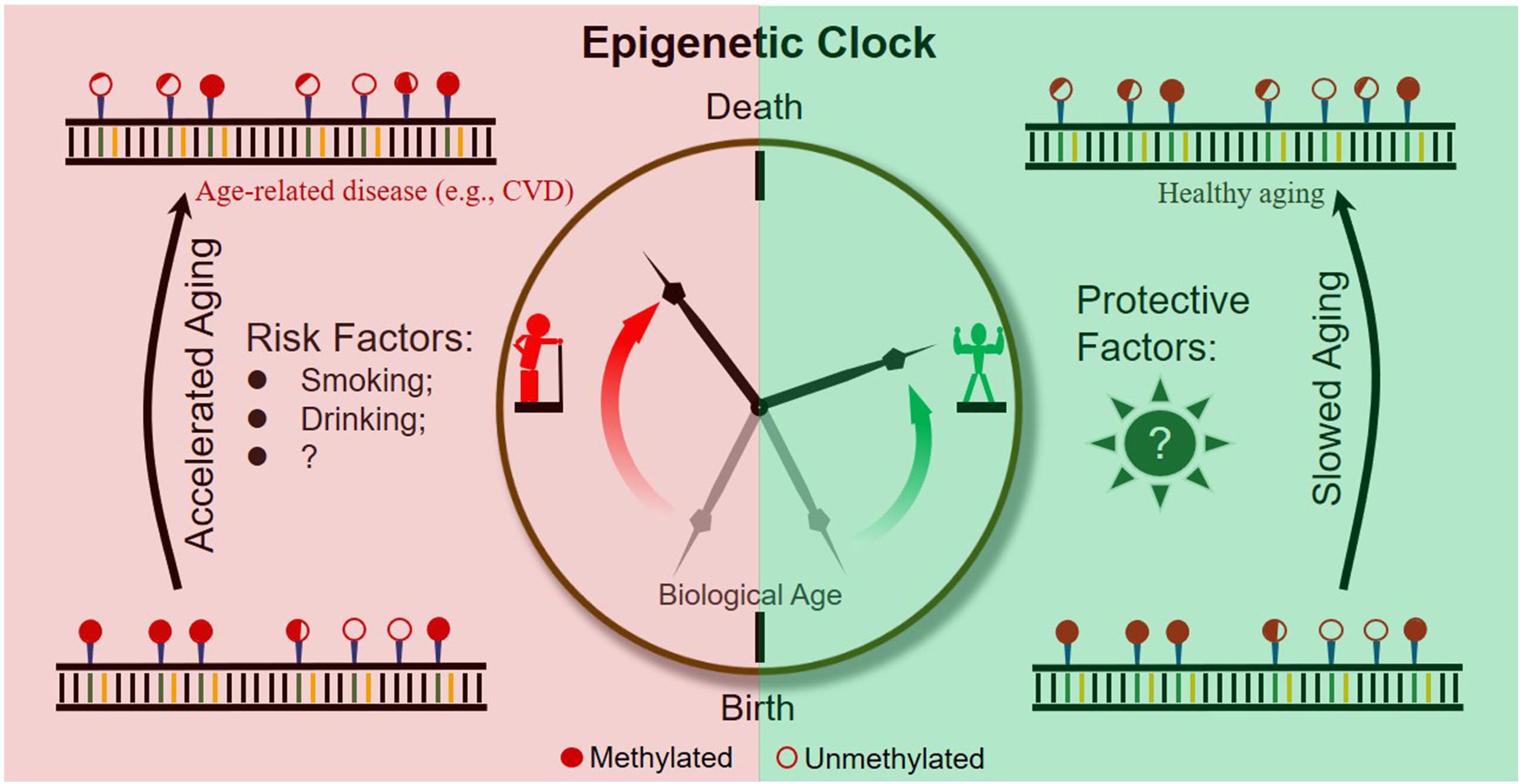Discovery and application of the maternal biological clock
Age-related pregnancy risks can be present, but are not always present. A maternal biological clock based on epigenetic models will help elucidate why some women who enter motherhood at advanced age have positive pregnancy outcomes and others do not; can be used to identify target risk factors to slow down the biological clock.
Epigenetic clocks are developed with observational data. Human samples of blood, bone, skin or other tissue are collected. DNA methylation analysis is conducted to ascertain gene expression, or more specifically, DNA methylation at certain regions (CpG sites). Participants’ chronological ages are regressed against these CpG sites. The result is an equation to predicts ages based on “biology”. An older age than that predicted indicates epigenetic age acceleration.

Source: Frontiers in Genetetics 2019, 10:107.
Although functional decline from aging is inevitable, lifestyle and environmental factors can either accelerate or decelerate biological aging. Until recently, when the first biological clock was developed, the ability to discern biological from chronological aging was not possible. There are now many biological clocks but none have been developed for pregnancy.
Project lead: Gavin Pereira
Collaborators: Centre for Fertility and Health, Norwegian Institute of Public Health (Folkehelseinstituttet)
References
- Horvath S. DNA methylation age of human tissues and cell types. Genome biology 2013;14:3156.